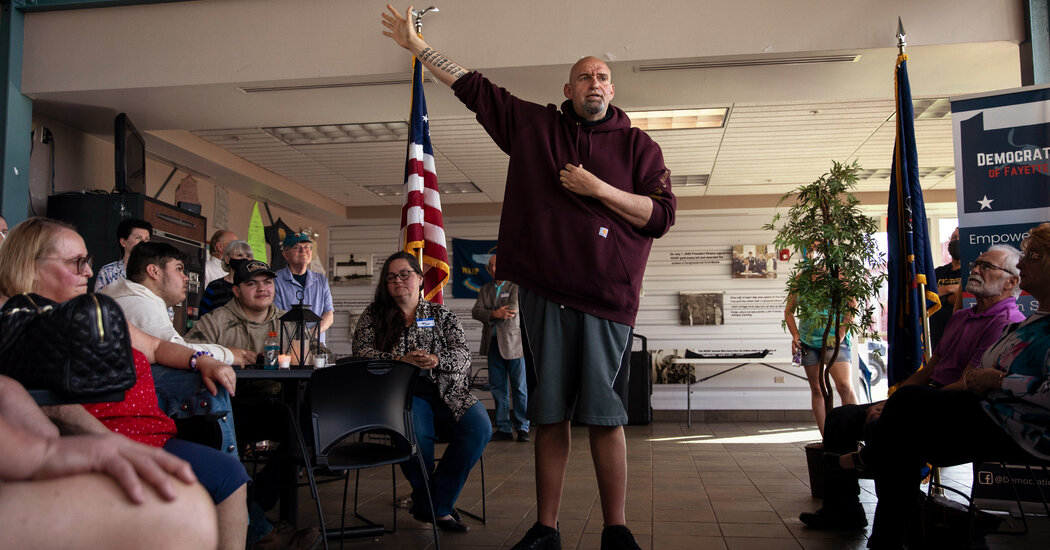
Although there was a rumor going around, courtesy of GQ, that Mr. Fetterman sometimes wore his favored looks with what the magazine identified as Maison Margiela side-zip boots, Rebecca Katz, a senior adviser to the Fetterman campaign, said that is incorrect; they are actually Florsheim boots. He also has Under Armour and Skechers sneakers, and occasionally wears slides.
Combined with his shaved head, goatee and tattoos (on his left arm, the ZIP code for Braddock, Pa., the town where he was mayor for 15 years; on his right, the dates when citizens of Braddock were killed by gun violence during his terms in office), the effect practically reeks of that word so beloved of the political class, and so rarely associated with them: authenticity.
It’s not that Mr. Fetterman looks particularly à la mode, but that he doesn’t look overly polished, or too fancy, or (yikes) styled. Indeed, he doth protest often that he has “negative fashion sense.” Which, of course, is the point. He looks real, an avatar of the American archetype of the working man who does an honest day’s labor (even though he did go to Harvard for his master’s degree, and his labor is mostly deskbound).
He also presents a visible contrast with Dr. Mehmet Oz, who tends to the Trump uniform of blue suit and bright red tie, and David McCormick (very business casual), one of whom will receive the Republican nomination after the results of that primary recount are in.
As Ms. Katz, the senior adviser, said, “he just wears what feels comfortable.”
At a time when comfort dressing is on the rise, there are worse ways to convince a disparate swath of the electorate that you understand their concerns and will represent them. That electorate may not have the time or inclination to read a lot of policy proposals or platforms or listen to stump speeches, but they know a kindred soul when they see one.






